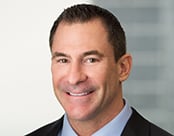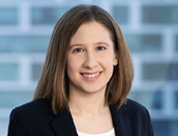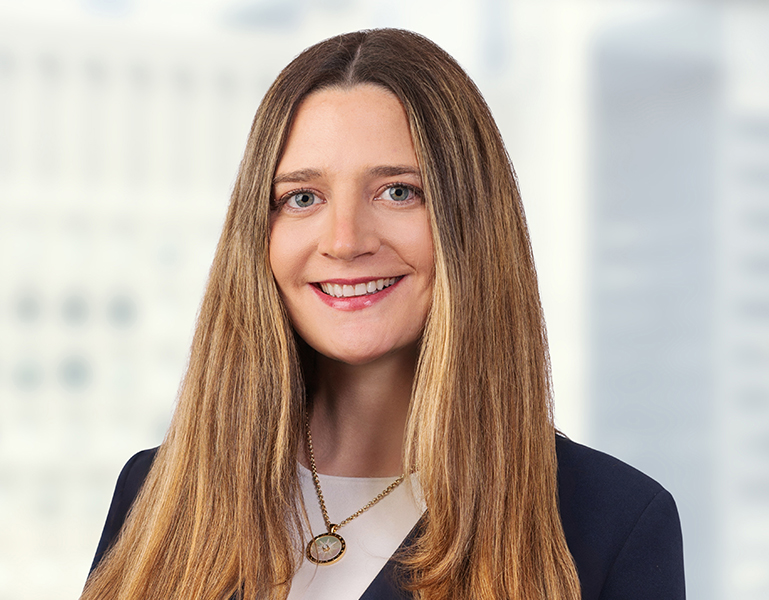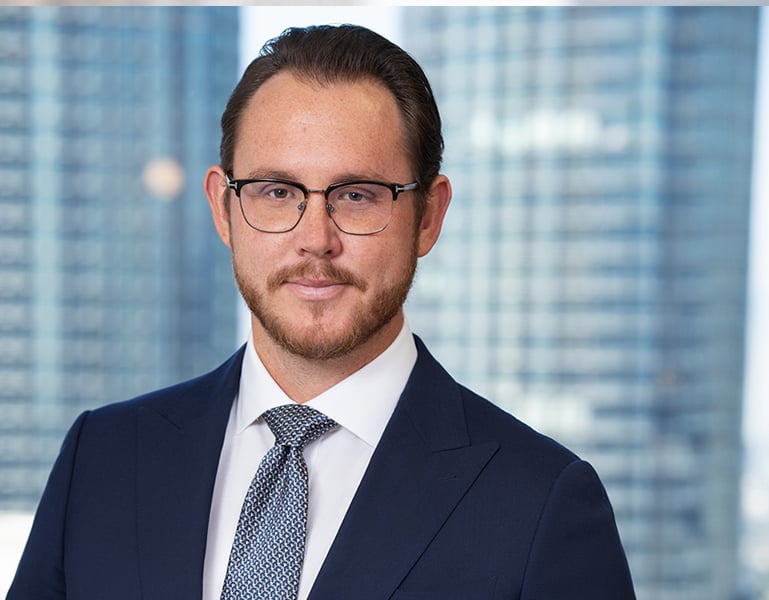Highlights from 2025 ALI-CLE Accountants' Liability Conference
The annual ALI-CLE Accountants’ Liability Conference was held in Washington, D.C. on June 2 and 3, 2025, and was co-hosted by Junaid A. Zubairi, Chair of Vedder Price’s Government Investigations and White Collar Defense group, and Veronica Callahan of Arnold & Porter LLP. The conference featured a wide variety of speakers, including regulators from the Securities and Exchange Commission (“SEC”) and the Public Company Accounting Oversight Board (“PCAOB”), in-house counsel, outside counsel, and consultants.
On June 2, 2025, SEC Commissioner Hester M. Peirce kicked off the conference by highlighting the SEC’s commitment to protecting retail investors and encouraging capital formation. In her remarks, she noted the importance of the SEC engaging in a targeted enforcement practice to address quantifiable retail investor harm. She further noted that retail investors often do not receive the same level of protection as, for example, private fund investors, who are represented by sophisticated advisers. Commissioner Peirce also expressed concerns about past enforcement actions involving violations of SEC rules that did not have a clear nexus to investor harm. She suggested that such situations might be better handled through the examination process rather than through enforcement.
Commissioner Peirce further shared her observation that SEC enforcement generally does not change that much from administration to administration. According to her, the best way to inspire people to engage in good conduct is to hold them accountable. Commissioner Peirce noted that she is in favor of imposing individual liability where warranted and even though it can be difficult to do so in practice—rather than imposing civil penalties on the corporation—especially in cases where it can be difficult to show that the corporation actually benefitted from the misconduct.
Commissioner Peirce also discussed the new Crypto Task Force that had been announced by the SEC under then-Acting Chairman Mark T. Uyeda. The Crypto Task Force’s announced goal is to provide clarity on the application of the federal securities laws to the crypto asset market and to recommend practical policy measures that aim to foster innovation and protect investors.[1] Commissioner Peirce noted, as one positive development, the rescinding of SEC Staff Accounting Bulletin 121, regarding how to account for an entity’s obligations to safeguard crypto-assets held for platform users. The Task Force is actively working with Congress and other agencies.
Addressing the role of gatekeepers, Commissioner Peirce highlighted her views regarding the importance of protecting auditors’ ability to exercise their independent judgment and of encouraging new auditors to enter into the profession. Commissioner Peirce commented, “I do think cooperation has an effect on the ultimate outcome of the case and penalties, some of that will continue.” However, she stated that she did not want to send a message that a gatekeeper (or anyone) would be punished more severely because they sought to defend themselves in an enforcement action. For example, Commissioner Peirce was not inclined to suggest that gatekeepers routinely waive attorney-client privilege in order to receive cooperation credit.
Commissioner Peirce touched on the recent return to a past SEC practice that formal orders of investigation must be approved by a majority of the SEC Commissioners. According to her, this practice aids the Commissioners in getting a sense of what is happening at the staff level early in a matter.
As for the PCAOB, Commissioner Peirce noted that the PCAOB “has been using enforcement in ways that are not particularly productive.” She also highlighted the need for the PCAOB to coordinate with the SEC and “try not to be duplicative.”
PCAOB Chair Erica Williams next issued a keynote address on day two of the conference. Chair Williams began her address by identifying that the purpose of the PCAOB is to protect investors. Quoting former President George W. Bush, Chair Williams reminded everyone that Congress created the PCAOB to restore trust after the Enron scandal: “For the sake of our free economy, those who break the law -- break the rules of fairness, those who are dishonest, however wealthy or successful they may be, must pay a price.”[2]
Chair Williams identified how the PCAOB has ensured investor protection not only domestically, but across the globe as well, pointing to a global exam integrity matter as the PCAOB’s highest monetary recovery to date. Chair Williams also noted how the PCAOB has succeeded in lowering the rate of Part 1A deficiencies across large and small audit firms. Chair Williams voiced her concern about legislation aimed to eliminate the PCAOB, identifying the fundamental differences between it and the SEC, and sharing that “cutting and pasting” the PCAOB into the SEC would cause significant risk to investors.
Chair Williams’s remarks focused on the PCAOB’s role in protecting investors in various ways. First, she identified the tripartite framework of the PCAOB: standard setting, investigations, and enforcement. She further emphasized that this framework is the key driver of investor protection and that the PCAOB does not intend to deviate from this framework regardless of the economic or geopolitical situation.
Second, Chair Williams identified the PCAOB’s approach to emerging technologies, such as cryptocurrency and generative artificial intelligence. She outlined the PCAOB’s goals of remaining nimble, while also providing both large and small firms “principles-based” standards, as opposed to prescriptive standards, in order to adapt to and overcome the challenges posed by continuous innovation.
Finally, Chair Williams voiced the importance of transparency and stakeholder engagement. She highlighted how the PCAOB has engaged on multiple fronts to provide firms of all sizes the ability to interact with PCAOB staff to ensure audit quality. Such initiatives include public comments on the PCAOB’s agenda, updating standards to reflect contemporaneous issues, publishing guidance, spotlights, and websites dedicated to smaller firms (including just last week, forming a Small Firm Resource Group), and hosting in-person workshops across the United States.
During last year’s conference, PCAOB Board Member George Botic identified the PCAOB’s Firm Culture Initiative, which examines the correlation between firm culture and audit quality. Chair Williams recounted the key findings of this study. She identified two key correlations: that there were fewer Part 1A deficiencies in instances where first, partners had been tenured longer, and second, where junior auditors spent more time in-person. The PCAOB reiterated the importance of the “tone at the top” in setting a positive firm culture to ensure audit quality, and in turn, investor protection.
Chair Williams concluded by addressing the crisis in the talent pipeline for auditors, urging students to consider the importance of selecting accounting, “a noble profession,” in order to continue protecting investors. Chair Williams identified the need to keep compensation competitive in order to keep pace with other professions, such as finance, as well as the increasing cost of education.
In addition to the remarks by Commissioner Peirce and Chair Williams, the conference featured several panel discussions regarding regulators’ perspectives on the PCAOB’s inspection program, “gatekeeper” liability in the context of regulatory investigations, and significant commentary on cooperation and emerging technologies. Key takeaways from these panel discussions included the following:
PCAOB Inspection Program
- The PCAOB Staff discussed changes in the PCAOB’s structure, noting that the PCAOB recently created the position of Chief of Firm Inspections to promote consistency, efficiency, and effectiveness among the PCAOB’s inspection teams. The PCAOB also changed certain internal processes to reduce the amount of time it takes for the PCAOB to release information to the public.
- Additionally, the PCAOB Staff commented that the PCAOB has seen an improvement in audit quality. Specifically, they noted that in 2023, the rate of Part 1A deficiencies was 46%, while in 2024, that number decreased to 24%.
- With respect to enforcement efforts, the PCAOB Staff explained that they continue to collaborate with the Division of Registration and Inspections to identify cases. They noted that they prioritize cases involving significant audit violations, auditor independence issues, and quality control deficiencies. Additionally, they stated that the PCAOB continues to work with foreign governments to take action against firms based outside of the United States.
- The PCAOB Staff also discussed the implementation of QC 1000, specifically with respect to smaller audit firms. They stated that the PCAOB has taken significant steps to help smaller firms comply with QC 1000, including by holding in-person workshops, updating the PCAOB’s website with topic-by-topic guidance, and creating a new webpage dedicated to smaller firms.
- Finally, the PCAOB Staff addressed remediation efforts by audit firms. The PCAOB Staff highlighted the PCAOB’s recent supplemental guidance on remediation, which was published in October. They further stated that for firms to have successful remediation efforts, they should actively engage with the PCAOB during the open period and obtain feedback from the inspection team. The PCAOB Staff also explained that an analysis of the root cause of any deficiencies is critical to proper remediation.
Gatekeeper Liability
- The SEC Staff began a discussion on gatekeeper liability by highlighting the critical roles played by auditors, audit committees, and preparers of financial statements in our capital markets. Ryan Wolfe, Acting Chief Accountant of the SEC’s Office of the Chief Accountant, explained that a robust enforcement program looking at gatekeepers should be guided by clear, articulated, and thoughtful standards with the goal of protecting the accounting profession, not punishing it.
- After reiterating Commissioner Peirce’s position on the importance of gatekeepers, the SEC Staff addressed changes to the formal order process, the reduction in staff, and efforts to implement a more centralized approach to unify national reporting and examinations. As the SEC Staff noted, despite the reduction in staff and transitionary period, the Division of Enforcement is continuing its efforts to root out fraud and protect investors and remains “on the beat.”
- The SEC Staff also discussed what the defense bar can expect from the Division of Enforcement, in terms of Wells meetings, pre-Wells meetings, the acceptance of white papers, and access to the investigative record including testimony transcripts, exhibits, and documents produced by third parties. While the answer remains dependent on the facts and circumstances of a particular matter, defense counsel can expect to have a substantive Wells discussion with Division of Enforcement leadership, although multiple meetings or pre-Wells meetings will not be granted in many cases. Although the SEC may be amenable to accepting white papers that serve to clarify a specific issue, the same will not be true when used to hinder or delay the investigation.
Self-Reporting, Cooperation, and Remediation
- Another panel provided key insight on enforcement risks and defense strategy, including whether and when to self-report. The SEC Staff emphasized not only the importance of self-reporting, but also cooperation and remediation. As the SEC Staff explained, it is never too late to self-report, and while full cooperation credit may not be given, an audit firm or company can still receive credit for cooperating to conserve staff resources, identifying key documents and issues, making witnesses available, and promptly implementing any necessary remedial changes to its internal policies and procedures.
Cyber and Emerging Technologies
- The panel on Cyber and Emerging Technologies engaged in a thoughtful discussion on the role of cryptocurrency, cyber security, and artificial intelligence in the audit profession today. Critically, the panel reflected upon the need to address challenges head-on, implement existing tools in creative ways to overcome ever-evolving technological challenges, and ensure proper oversight and disclosure to protect investors.
If you have any questions about this article, please contact , Rachel T. Copenhaver at rcopenhaver@vedderprice.com, Michael J. Quinn, mquinn@vedderprice.com, Junaid A. Zubairi at jzubairi@vedderprice.com, Courtney M. Brown, cmbrown@vedderprice.com, Nusra Ismail at nismail@vedderprice.com, Olivia Rauh, orauh@vedderprice.com, Philip Tankovich, ptankovich@vedderprice.com, or any Vedder Price attorney with whom you have worked.
Vedder Thinking | Articles Highlights from 2025 ALI-CLE Accountants' Liability Conference
Publication
June 9, 2025
The annual ALI-CLE Accountants’ Liability Conference was held in Washington, D.C. on June 2 and 3, 2025, and was co-hosted by Junaid A. Zubairi, Chair of Vedder Price’s Government Investigations and White Collar Defense group, and Veronica Callahan of Arnold & Porter LLP. The conference featured a wide variety of speakers, including regulators from the Securities and Exchange Commission (“SEC”) and the Public Company Accounting Oversight Board (“PCAOB”), in-house counsel, outside counsel, and consultants.
On June 2, 2025, SEC Commissioner Hester M. Peirce kicked off the conference by highlighting the SEC’s commitment to protecting retail investors and encouraging capital formation. In her remarks, she noted the importance of the SEC engaging in a targeted enforcement practice to address quantifiable retail investor harm. She further noted that retail investors often do not receive the same level of protection as, for example, private fund investors, who are represented by sophisticated advisers. Commissioner Peirce also expressed concerns about past enforcement actions involving violations of SEC rules that did not have a clear nexus to investor harm. She suggested that such situations might be better handled through the examination process rather than through enforcement.
Commissioner Peirce further shared her observation that SEC enforcement generally does not change that much from administration to administration. According to her, the best way to inspire people to engage in good conduct is to hold them accountable. Commissioner Peirce noted that she is in favor of imposing individual liability where warranted and even though it can be difficult to do so in practice—rather than imposing civil penalties on the corporation—especially in cases where it can be difficult to show that the corporation actually benefitted from the misconduct.
Commissioner Peirce also discussed the new Crypto Task Force that had been announced by the SEC under then-Acting Chairman Mark T. Uyeda. The Crypto Task Force’s announced goal is to provide clarity on the application of the federal securities laws to the crypto asset market and to recommend practical policy measures that aim to foster innovation and protect investors.[1] Commissioner Peirce noted, as one positive development, the rescinding of SEC Staff Accounting Bulletin 121, regarding how to account for an entity’s obligations to safeguard crypto-assets held for platform users. The Task Force is actively working with Congress and other agencies.
Addressing the role of gatekeepers, Commissioner Peirce highlighted her views regarding the importance of protecting auditors’ ability to exercise their independent judgment and of encouraging new auditors to enter into the profession. Commissioner Peirce commented, “I do think cooperation has an effect on the ultimate outcome of the case and penalties, some of that will continue.” However, she stated that she did not want to send a message that a gatekeeper (or anyone) would be punished more severely because they sought to defend themselves in an enforcement action. For example, Commissioner Peirce was not inclined to suggest that gatekeepers routinely waive attorney-client privilege in order to receive cooperation credit.
Commissioner Peirce touched on the recent return to a past SEC practice that formal orders of investigation must be approved by a majority of the SEC Commissioners. According to her, this practice aids the Commissioners in getting a sense of what is happening at the staff level early in a matter.
As for the PCAOB, Commissioner Peirce noted that the PCAOB “has been using enforcement in ways that are not particularly productive.” She also highlighted the need for the PCAOB to coordinate with the SEC and “try not to be duplicative.”
PCAOB Chair Erica Williams next issued a keynote address on day two of the conference. Chair Williams began her address by identifying that the purpose of the PCAOB is to protect investors. Quoting former President George W. Bush, Chair Williams reminded everyone that Congress created the PCAOB to restore trust after the Enron scandal: “For the sake of our free economy, those who break the law -- break the rules of fairness, those who are dishonest, however wealthy or successful they may be, must pay a price.”[2]
Chair Williams identified how the PCAOB has ensured investor protection not only domestically, but across the globe as well, pointing to a global exam integrity matter as the PCAOB’s highest monetary recovery to date. Chair Williams also noted how the PCAOB has succeeded in lowering the rate of Part 1A deficiencies across large and small audit firms. Chair Williams voiced her concern about legislation aimed to eliminate the PCAOB, identifying the fundamental differences between it and the SEC, and sharing that “cutting and pasting” the PCAOB into the SEC would cause significant risk to investors.
Chair Williams’s remarks focused on the PCAOB’s role in protecting investors in various ways. First, she identified the tripartite framework of the PCAOB: standard setting, investigations, and enforcement. She further emphasized that this framework is the key driver of investor protection and that the PCAOB does not intend to deviate from this framework regardless of the economic or geopolitical situation.
Second, Chair Williams identified the PCAOB’s approach to emerging technologies, such as cryptocurrency and generative artificial intelligence. She outlined the PCAOB’s goals of remaining nimble, while also providing both large and small firms “principles-based” standards, as opposed to prescriptive standards, in order to adapt to and overcome the challenges posed by continuous innovation.
Finally, Chair Williams voiced the importance of transparency and stakeholder engagement. She highlighted how the PCAOB has engaged on multiple fronts to provide firms of all sizes the ability to interact with PCAOB staff to ensure audit quality. Such initiatives include public comments on the PCAOB’s agenda, updating standards to reflect contemporaneous issues, publishing guidance, spotlights, and websites dedicated to smaller firms (including just last week, forming a Small Firm Resource Group), and hosting in-person workshops across the United States.
During last year’s conference, PCAOB Board Member George Botic identified the PCAOB’s Firm Culture Initiative, which examines the correlation between firm culture and audit quality. Chair Williams recounted the key findings of this study. She identified two key correlations: that there were fewer Part 1A deficiencies in instances where first, partners had been tenured longer, and second, where junior auditors spent more time in-person. The PCAOB reiterated the importance of the “tone at the top” in setting a positive firm culture to ensure audit quality, and in turn, investor protection.
Chair Williams concluded by addressing the crisis in the talent pipeline for auditors, urging students to consider the importance of selecting accounting, “a noble profession,” in order to continue protecting investors. Chair Williams identified the need to keep compensation competitive in order to keep pace with other professions, such as finance, as well as the increasing cost of education.
In addition to the remarks by Commissioner Peirce and Chair Williams, the conference featured several panel discussions regarding regulators’ perspectives on the PCAOB’s inspection program, “gatekeeper” liability in the context of regulatory investigations, and significant commentary on cooperation and emerging technologies. Key takeaways from these panel discussions included the following:
PCAOB Inspection Program
- The PCAOB Staff discussed changes in the PCAOB’s structure, noting that the PCAOB recently created the position of Chief of Firm Inspections to promote consistency, efficiency, and effectiveness among the PCAOB’s inspection teams. The PCAOB also changed certain internal processes to reduce the amount of time it takes for the PCAOB to release information to the public.
- Additionally, the PCAOB Staff commented that the PCAOB has seen an improvement in audit quality. Specifically, they noted that in 2023, the rate of Part 1A deficiencies was 46%, while in 2024, that number decreased to 24%.
- With respect to enforcement efforts, the PCAOB Staff explained that they continue to collaborate with the Division of Registration and Inspections to identify cases. They noted that they prioritize cases involving significant audit violations, auditor independence issues, and quality control deficiencies. Additionally, they stated that the PCAOB continues to work with foreign governments to take action against firms based outside of the United States.
- The PCAOB Staff also discussed the implementation of QC 1000, specifically with respect to smaller audit firms. They stated that the PCAOB has taken significant steps to help smaller firms comply with QC 1000, including by holding in-person workshops, updating the PCAOB’s website with topic-by-topic guidance, and creating a new webpage dedicated to smaller firms.
- Finally, the PCAOB Staff addressed remediation efforts by audit firms. The PCAOB Staff highlighted the PCAOB’s recent supplemental guidance on remediation, which was published in October. They further stated that for firms to have successful remediation efforts, they should actively engage with the PCAOB during the open period and obtain feedback from the inspection team. The PCAOB Staff also explained that an analysis of the root cause of any deficiencies is critical to proper remediation.
Gatekeeper Liability
- The SEC Staff began a discussion on gatekeeper liability by highlighting the critical roles played by auditors, audit committees, and preparers of financial statements in our capital markets. Ryan Wolfe, Acting Chief Accountant of the SEC’s Office of the Chief Accountant, explained that a robust enforcement program looking at gatekeepers should be guided by clear, articulated, and thoughtful standards with the goal of protecting the accounting profession, not punishing it.
- After reiterating Commissioner Peirce’s position on the importance of gatekeepers, the SEC Staff addressed changes to the formal order process, the reduction in staff, and efforts to implement a more centralized approach to unify national reporting and examinations. As the SEC Staff noted, despite the reduction in staff and transitionary period, the Division of Enforcement is continuing its efforts to root out fraud and protect investors and remains “on the beat.”
- The SEC Staff also discussed what the defense bar can expect from the Division of Enforcement, in terms of Wells meetings, pre-Wells meetings, the acceptance of white papers, and access to the investigative record including testimony transcripts, exhibits, and documents produced by third parties. While the answer remains dependent on the facts and circumstances of a particular matter, defense counsel can expect to have a substantive Wells discussion with Division of Enforcement leadership, although multiple meetings or pre-Wells meetings will not be granted in many cases. Although the SEC may be amenable to accepting white papers that serve to clarify a specific issue, the same will not be true when used to hinder or delay the investigation.
Self-Reporting, Cooperation, and Remediation
- Another panel provided key insight on enforcement risks and defense strategy, including whether and when to self-report. The SEC Staff emphasized not only the importance of self-reporting, but also cooperation and remediation. As the SEC Staff explained, it is never too late to self-report, and while full cooperation credit may not be given, an audit firm or company can still receive credit for cooperating to conserve staff resources, identifying key documents and issues, making witnesses available, and promptly implementing any necessary remedial changes to its internal policies and procedures.
Cyber and Emerging Technologies
- The panel on Cyber and Emerging Technologies engaged in a thoughtful discussion on the role of cryptocurrency, cyber security, and artificial intelligence in the audit profession today. Critically, the panel reflected upon the need to address challenges head-on, implement existing tools in creative ways to overcome ever-evolving technological challenges, and ensure proper oversight and disclosure to protect investors.
If you have any questions about this article, please contact , Rachel T. Copenhaver at rcopenhaver@vedderprice.com, Michael J. Quinn, mquinn@vedderprice.com, Junaid A. Zubairi at jzubairi@vedderprice.com, Courtney M. Brown, cmbrown@vedderprice.com, Nusra Ismail at nismail@vedderprice.com, Olivia Rauh, orauh@vedderprice.com, Philip Tankovich, ptankovich@vedderprice.com, or any Vedder Price attorney with whom you have worked.






